Comments and Issues
2023 zoning and aspirants’ pairing permutations (3)
Published
2 years agoon
By
Publisher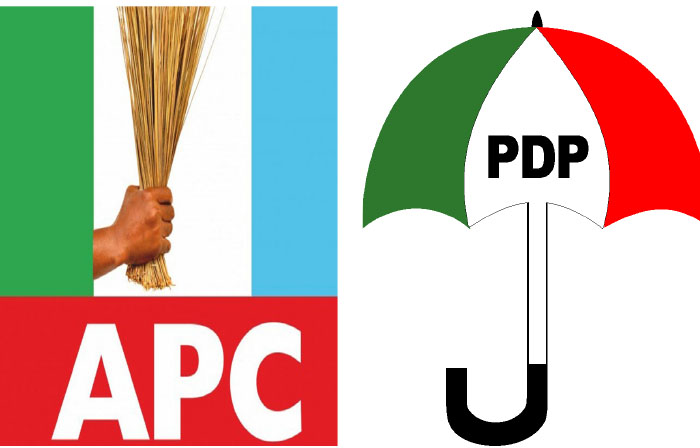
By Ehichioya Ezomon
The rotation of the presidency between the North and South of Nigeria for the 2023 general election remains fluid, even as the number of aspirants for the exalted office swells by the day.
No polity watcher can, as yet, put an exact or a reliable figure to it, but scores of aspirants on the platforms of the ruling All Progressives Congress (APC) and the main opposition Peoples Democratic Party (PDP) have declared, indicated or being wooed or “forced” to announce their intentions to run for president.
Also read: 2023 Presidency: Here are 3 things that may likely happen if Jonathan joins presidential race
Yes, you read it correctly! Politicians being “forced” to declare for the Office of President of Nigeria. For instance, former Governor of Abia State and Senate Chief Whip, Dr Orji Uzir Kalu, has been taken to court by some support groups in the North, praying for an order to compel him to declare for the 2023 presidency.
Senator Kalu has called for an “out-of-court settlement,” as the money to litigate the case will go a long in his campaigns were he to contest for the seat he’s advocated should be zoned to the South, and possibly to the South-East that’s long agitated for it.
Many have canvassed for the presidency to be zoned to Southern Nigeria, expressly as President Muhammadu Buhari, a Northerner, is completing his eight-year tenure in 2023, and it’s expected that going by rotation, the next president should come from the South.
Yet, the North looks averse to power shifting South, as “it’s lost a term of four years” when President Umaru Musa Yar’Adua died in his third year in office in 2010, before completing the constitutionally and rotationally-guaranteed eight-year tenure of office.
Also read: Kwankaso, Galadima, others form Third Force ahead of 2023
While the tug-of-war persists between the North and South, some suggest resolving the rotation impasse by allowing the presidency to float – without zoning the office to the North or South.
In that regard, the party candidates will emerge on the basis of competence from the North or South, and/or from any of the six geopolitical zones of North Central (Middle Belt), North-East, North-West, South-East, South-South (Niger Delta) and South-West.
*Apt as this proposal is, “competence” in Nigeria’s politics is a supposition that doesn’t meet its definition by dictionary.com as, “the quality of being competent; adequacy; possession of required skill, knowledge, qualification, or capacity.”
Also read: 2023 zoning and aspirants’ pairing permutations (1)
Hardly, if any, do these qualities matter to Nigerian politicians, the political parties, power brokers and even the electorate before picking candidates, and voting for same in any elections!
What matter are aspirants’ tribes, religion, and a war chest to influence their choice as candidates, run their campaigns, and garner votes mostly by means of manipulation of the processes.
Discarding zoning, and allowing open contest for the presidency in 2023 may result, as usual, in electing the “incompetent” as the “most qualified” by reason of the candidate being able to swing the votes at the primaries, and in the general election.
Also read: 2023 zoning and aspirants’ pairing permutations (2)
As politics is a game of numbers, those canvassing for emergence of “competent” candidates from any part of Nigeria are banking on “producing the right numbers” at the primaries or in the polls.*
And that could mean one thing: Resort to Nigeria’s primordial cleavages, which would benefit aspirants from the Northern part of the country, going by the large number of votes coming from the region at every election.
Unless the “kingmakers” in the North – as they’d done in past electoral contests, and are boasting of repeating in future elections – allow power to shift to the South, the North will continue to rule Nigeria if the presidency is open to all aspirants from whatever region or geopolitical zone of the country.
That’s why agitation for rotation of the presidency will be an endless venture for the South and Southern aspirants, a scenario the major platforms of the APC and PDP should resolve in 2023, and arrest the bizarre posturing and positioning of aspirants for the offices of president and vice president at the same time.
And talking about aspiring for both offices, presidential aspirants of the APC and PDP, and their surrogates or support groups have been “match-making” by pairing themselves with multiple aspirants. The criterion for pairing is to join aspirants of different religious affiliations: a Christian-Muslim or a Muslim-Christian ticket, as a Christian-Christian or a Muslim-Muslim presidential ticket seems abhorrent in Nigeria’s polarised political space.
The only exception was the joint ticket of Chief Moshood Kashimawo Olawale Abiola and Ambassador Babagana Kingibe, both Muslims, in the June 12, 1993, presidential poll, which’s annulled by the military government of Gen. Ibrahim Badamasi Babangida that ordered the election.
Were that poll, handsomely won by Abiola, to stand, the issue of religion in considering a joint ticket for the presidency would’ve been relegated in subsequent elections since the return of democratic governance in 1999.
The religious issue reportedly played a role in “depriving” former Lagos State governor and National Leader of the APC, Asiwaju Bola Ahmed Tinubu, the post of running mate to the party’s candidate in the 2015 presidential election, former Head of State, retired Gen. Buhari, as both are Muslims. Then newly-formed APC, beating the drums of taking over power from the ruling PDP, couldn’t afford a possible backlash from the Christian community were the Muslim-Muslim ticket of Buhari/Tinubu to go against the Christian-Muslim ticket of President Goodluck Jonathan and Vice President Namadi Sambo.
Tinubu, who came to the 2013 merger table of the Legacy Parties with five states ruled by his Action Congress of Nigeria (ACN), to one state governed by Buhari’s Congress for Progressive Change (CPC), was forced to relinquish his vice presidential ambition.
He’s, however, reportedly given the privilege of nominating an aspirant, and the lot fell on Prof. Yemi Osinbajo, former Lagos State Attorney General and Commissioner for Justice under Tinubu’s administration, who ran with Buhari and won the presidency.
The poser: Will religion rear its head in determining the 2023 presidential ticket, especially in the APC and PDP? Absolutely! And that makes the pairing permutations dicey for the aspirants. Yet, political jugglers are testing the waters for a Muslim-Muslim ticket, to see if it’ll scale through, as in 1993, or leave Nigeria hostage to the scheming of religious demagogues to keep certain persons and groups out of power at the national level.
As the coast will clear on that front in a matter of weeks, a few aspirants in the crowded presidential field, dominated by serving or past governors, are receiving rave reviews in the pairing calculus.
Last Line: While there’s talk about a “Third Force” or a Mega Party coming “to disrupt the current system,” Part 4 of this series focuses on the comical “match-making” of presidential aspirants for joint tickets, beginning with the All Progressives Congress (APC).
- Mr. Ezomon is celebrated Journalist, Columnist and Political Analyst.
You may like
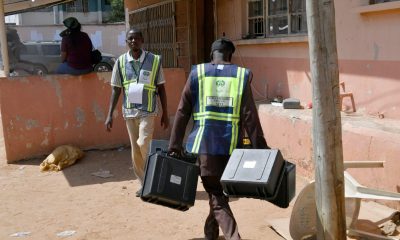

INEC suspends re-run elections in Akwa Ibom, Enugu, Kano
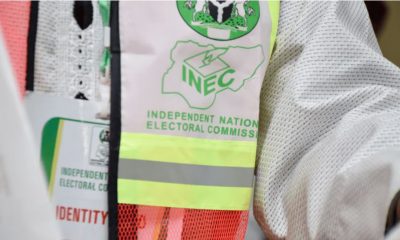

Be neutral, fair during elections — INEC to electoral officials
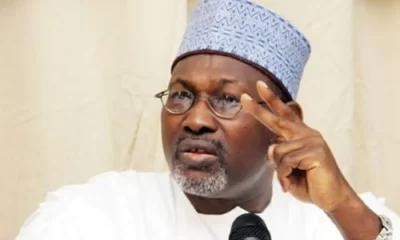

Ex-INEC Chairman, Jega reveals why IReV was not used in 2023 presidential election
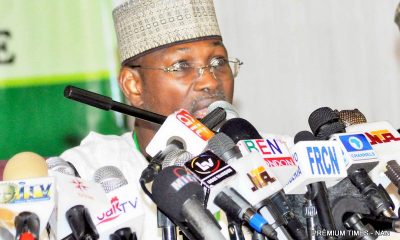

INEC releases data of candidates for bye-elections in Surulere, Ondo, others
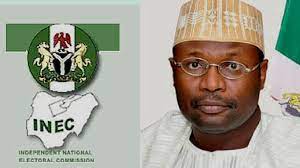

Court restrains INEC from holding by-elections in Rivers
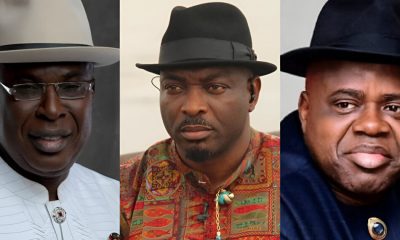

INEC announces Diri winner of Bayelsa Governorship Election
1 Comment
Leave a Reply
Cancel reply
Leave a Reply
Trending

 Business7 days ago
Business7 days agoDollar crashes further against Naira at parallel market

 Business6 days ago
Business6 days agoRecapitalisation: Zenith Bank to raise funds in international capital market

 Education6 days ago
Education6 days agoArmy reveals date for COAS 2024 first quarter conference

 Crime7 days ago
Crime7 days agoFleeing driver injures two on Lagos-Badagry expressway

 Football13 hours ago
Football13 hours agoGuardiola advised to take further action against De Bruyne and Haaland after both players ‘abandoned’ crucial game

 Covid-196 days ago
Covid-196 days agoBritish legislator demands Bill Gates, other ‘COVID Cabal’ faces death penalty

 Business7 days ago
Business7 days agoZenith Bank surpasses N2trn earnings milestone

 Latest4 days ago
Latest4 days agoIsrael pounds Hezbollah with airstrikes after Iran attack


Sheriff
February 24, 2022 at 11:11 pm
Naija wahla…God will see us through